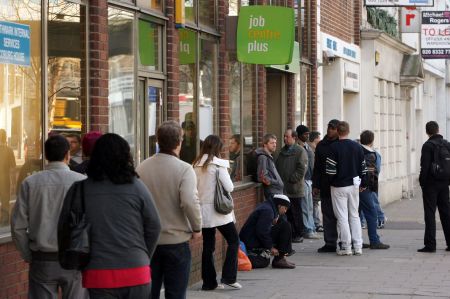The widely-held notion that UK jobs are being taken by people from Africa, Asia and the Middle East who “have no right to be here” has been dealt a blow by recently-published statistics.

Figures show non-EU migrants get very few of the jobs performed by foreign workers
Figures from the Office for National Statistics have shown that between April and June this year alone, the number of British-born workers in the UK workforce grew by 40,000 while the number of foreign-born workers rose by 170,000.
Figures from the Office for National Statistics have shown that between April and June this year alone, the number of British-born workers in the UK workforce grew by 40,000 while the number of foreign-born workers rose by 170,000.
The figures were released on August 13th and show that the total number of workers in the UK’s workforce climbed from 30,431,000 to 30,537,000 between April and June. Of these, 25,813,000 were British-born and 4,724,000 born overseas. The statistics also show that the number of foreign workers in the UK has quadrupled since 1997 when less than one million foreign workers worked in the country.
In the last year, the number of foreign-born workers rose by 7% while British-born workers rose by only 2%. The figures also show that almost all of the increase was made up of EU workers.
Workers from the European Union have the right to live and work in the UK because of the single European labour market. There are now 1,836,000 workers in the UK who were born in other EU countries. 787, 000 of these come from the ‘old EU’ countries that have been members of the union for over thirty years.
A further 153,000 come from Romania and Bulgaria, which joined the EU in 2007 but only arrived in large numbers into the UK at the start of this year, following the lifting of restrictions. A further 861,000 come from the A8 countries, which joined the EU in 2004.
When Romania and Bulgaria joined the EU in 2007, the British government and many other EU countries introduced ‘transitional controls’ which prevented many Bulgarian and Romanian workers from working in the UK for five years. This was to prevent a sudden influx of workers coming from the two countries where wages are much lower than the UK.
The overall increase of workers from the EU was 89,000 between April and June. 12,000 of these came from the ‘old EU’ while majority came from the A8 countries. The number of workers from the A8 countries rose by 59,000 in the three months in question.
These figures contradict the frequently voiced contention of those on the right of the political spectrum that the lack of jobs and social housing in the UK can be blamed on refugees and illegal migrants from areas such as East Africa, West Africa and the Middle East.









